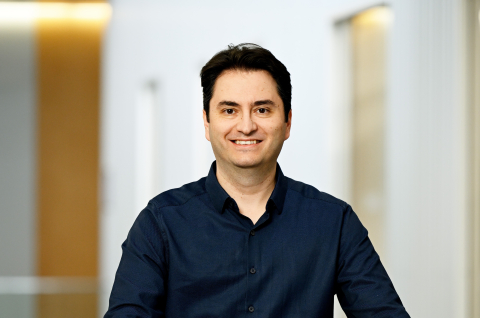DIFFER has launched a new name for the Solar Fuels department: Chemical Energy. With this new name, one of DIFFER’s two research departments features a more inclusive name, for the long term. Although Solar Fuels has been a suitable name for many years, the department’s activities now go far beyond generating fuels using only energy from sunlight.
As the world of energy science changes, so does DIFFER’s research. The name Solar Fuels seemed to be not fully inclusive anymore and didn’t fully cover the department’s research and ambitions. Department Head Süleyman Er: “Searching for a new name was quite a challenge, but I’m really happy with this new name. We were looking for a name that fits for the long term. Lots of names have been suggested and considered. With ‘chemical energy’ we have a name that’s inclusive, good to pronounce and in synergy with the fusion energy department.”

Energy stored within molecules
What is chemical energy and what is the department currently working on? Er: “Chemical energy is stored in the bonds of molecules. When these bonds are broken, energy is released. This energy can be used to power machines, generate electricity, or heat homes. When we talk about molecules, when we talk about storing energy inside molecules, we always talk about chemical energy.”
The chemical aspect is shown in the many combinations you can make. “If you think of water, for instance. You can generate hydrogen from water, which we call hydrogen as a fuel. You can combine the hydrogen with carbon (when you split carbon dioxide) to make methane. Another opportunity is to make ammonia, which is a fertilizer as well as a fuel carrier for hydrogen. This ammonia can be obtained when you combine hydrogen with nitrogen oxides”, explains Er.
Importance of DIFFER’s chemical energy research
So, has anything changed in terms of the department's strategy? Er: “In principle, not much will change on that end. Firstly, we still try to combat the climate change and to reduce fossil fuel reliance. Secondly we also have to think of energy security and creating a secure, sustainable energy system, reducing fuel imports from outside The Netherlands. Moreover we focus on economic opportunities that comes from new innovations in chemical energy. You can think of, for instance, changing of industry; from dirty old fashioned, high energy demanding chemical industry to a clean industry.”
From conceptualization to plasma reactor
The Chemical Energy department covers different expertises. Er: “It starts with visualization in the computer and performing simulations and making predictions; which molecule (material) is interesting for our research? Then we make these materials -if possible- in our own labs. The next step is to examine the materials, whether they seem interesting or not, and see if they actually work in chemistry. If they all perform well, we move forward to scaling up and developing a fully functional reactor."
Innovation and automatization
Also Artificial Intelligence will play a big role in the Chemical Energy department. “Our ambition is to work towards a self-driving lab for energy research. The idea is that the lab can operate on its own, with minimal human intervention and in the future -if possible- with no human intervention at all”, states Er.
Author: Rianne van Hoek
Go to the News page.